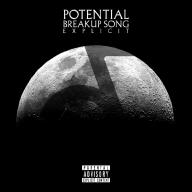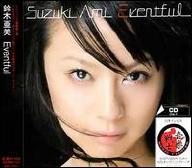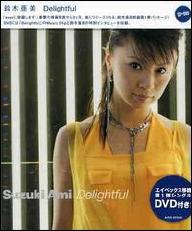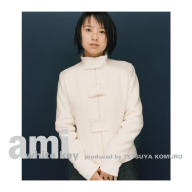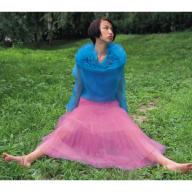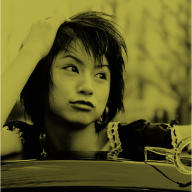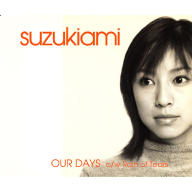Unlike Ayumi Hamasaki, with whom the Japanese media has tried to build up a rivalry that never truly existed, Suzuki is a pop idol in the classic mould, with a slender physique and an innocent look in her eye in the vein of '80s superstar Seiko Matsuda. Born in Kanagawa Prefecture (like Matsuda) in 1982, Suzuki shot to fame when she beat 13,500 contestants to win TV Tokyo's talent contest series, #Ayasan, a precursor of the #Idols format seen later in the West. #Ayasan, which also gave the world the Japan's most famous girl group, Morning Musume, offered the winner a chance to sign with Sony Music Entertainment and work with producer Tetsuya Komuro, Japan's most successful songwriter of the mid- to late '90s, who had formed his own pop idol group Globe while penning hits for the likes of hitomi and Namie Amuro. Suzuki was a 15-year-old high school girl at the time of entering the talent contest. Rumors persist that her victory in the show was, in fact, fixed and that the series was a marketing ploy by her management company, AG Communications, to guarantee their artist high exposure.
Suzuki's debut single Love the Island reached the Top Five of the Oricon charts in 1998, selling almost 300,000 copies. Her second single went one better, going Top Three. By the end of that year, Suzuki had won the gong for Best New Artist at the annual Japan Record Awards and was hosting her own radio show, # Run! Run! Suzuki-go! broadcast on Nippon Broadcasting. Suzuki's debut album SA was released in March 1998, going on to sell almost two million copies.
A year after her debut, "Suzuki-go," as her fans dubbed her, was ready to go head to head against J-pop's reigning queen, Ayumi Hamasaki. Be Together shared a release date with Hamasaki's Boys and Girls. Suzuki won out, scoring her first number one single.
Suzuki's first stab at songwriting, on the 2000 single Don't Need to Say Goodbye, was highly successful, shifting almost 350,000 copies. Her lyrics struck a chord among graduating high-school students (Suzuki was graduating from high school herself at the time) in the same way that Yuki Saito's Sotsugyo did with graduating students in the '80s.
After withdrawing from the industry, Suzuki made a comeback with her first concert in three-and-half years in front of 3,500 fans in Yokohama in May 2004. This, and the success of her Forever Love single on Suzuki's own Suzukity imprint (which reached number 21 on the Oricon album charts and number one on the "indies" chart), indicated that not all of Suzuki's fans had deserted her during a four-year hiatus.
But the real turning point came in autumn of that year when a Masto Max Matsuura, president of Japan's largest independent record label, Avex, attended an Suzuki live show. Matsuura was obviously impressed, and at the final date of a small nationwide tour in December (with ex-Megadeth lead guitarist and long-term Tokyo resident Marty Friedman in her backing band), Suzuki announced from the stage that she had signed with Avex.
When she resurfaced in March 2005 -- a low-key, download-only release at the beginning of 2005 notwithstanding -- fans could have been forgiven for thinking Suzuki had been Kumi Koda-fied by Matsuura, given the hair extensions that accompanied the high-energy trance pop of the single Delightful. The formula worked though, as Delightful went on to become one of 2005's biggest selling singles.
Suzuki's first album on Avex, and first release in five years, went Top Five upon its release in October 2005, selling 60,000. In December that year, Suzuki took part in the annual "A-nation" tour, in which Avex sends its charges around Japan on a joint tour. Also on the bill was Ai Otsuka, who penned Suzuki's 2006 single, the ballad Like a Love?
It wasn't only her singing career that Suzuki was busy getting back on track. She also appeared in Naoto Kumazawa's film #Niji no MegSuzuki (Rainbow Song), a bittersweet love story which hit movie theaters in Japan in 2006. ~ David Hickey, Rovi



